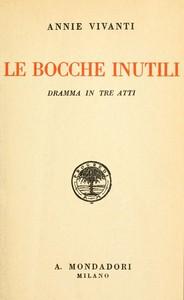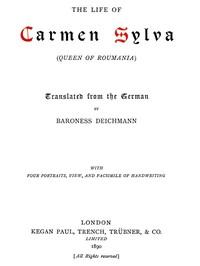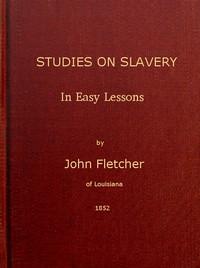Read this ebook for free! No credit card needed, absolutely nothing to pay.
Words: 245314 in 76 pages
This is an ebook sharing website. You can read the uploaded ebooks for free here. No credit cards needed, nothing to pay. If you want to own a digital copy of the ebook, or want to read offline with your favorite ebook-reader, then you can choose to buy and download the ebook.
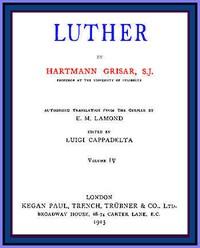

: Luther vol. 4 of 6 by Grisar Hartmann Dessoulavy C L Charles Louis Editor Lamond E M Translator - Luther Martin 1483-1546
THE REFORMER
LUTHER
PRINCELY MARRIAGES
IN King Henry the Eighth's celebrated matrimonial controversy the Roman See by its final decision was energetically to vindicate the cause of justice, in spite of the fear that this might lead to the loss of England to Catholicism. The considered judgment was clear and definite: Rather than countenance the King's divorce from Queen Catherine, or admit bigamy as lawful, the Roman Church was prepared to see the falling away of the King and larger portion of the realm.
In the summer, 1531, Luther was drawn into the controversy raging round the King's marriage, by an agent of King Henry's. Robert Barnes, an English Doctor of Divinity who had apostatised from the Church and was residing at Wittenberg, requested of Luther, probably at the King's instigation, an opinion regarding the lawfulness of his sovereign's divorce.
To Luther it was clear enough that there was no possibility of questioning the validity of Catherine's marriage. It rightly appeared to him impossible that the Papal dispensation, by virtue of which Catherine of Aragon had married the King after having been the spouse of his deceased brother, should be represented as sufficient ground for a divorce. This view he expressed with praiseworthy frankness in the written answer he gave Barnes.
At the same time, however, Luther pointed out to the King a loophole by which he might be able to succeed in obtaining the object of his desire; by this concession, unfortunately, he branded his action as a pandering to the passions of an adulterous King. At the conclusion of his memorandum to Barnes he has the following: "Should the Queen be unable to prevent the divorce, she must accept the great evil and most insulting injustice as a cross, but not in any way acquiesce in it or consent to it. Better were it for her to allow the King to wed another Queen, after the example of the Patriarchs, who, in the ages previous to the law, had many wives; but she must not consent to being excluded from her conjugal rights or to forfeiting the title of Queen of England."
Melanchthon, too, had intervened in the affair, and had gone considerably further than Luther in recommending recourse to bigamy and in answering possible objections to polygamy.
In a memorandum of Aug. 23, Melanchthon declared that the King was entirely justified in seeking to obtain the male heirs with whom Catherine had failed to present him; this was demanded by the interests of the State. He endeavours to show that polygamy is not forbidden by Divine law; in order to avoid scandal it was, however, desirable that the King "should request the Pope to sanction his bigamy, permission being granted readily enough at Rome." Should the Pope refuse to give the dispensation, then the King was simply and of his own authority to have recourse to bigamy, because in that case the Pope was not doing his duty, for he was "bound in charity to grant this dispensation." "Although I should be loath to allow polygamy generally, yet, in the present case, on account of the great advantage to the kingdom and perhaps to the King's conscience, I would say: The King may, with a good conscience , take a second wife while retaining the first, because it is certain that polygamy is not forbidden by the Divine law, nor is it so very unusual." Melanchthon's ruthless manner of proceeding undoubtedly had a great influence on the other Wittenbergers, even though it cannot be maintained, as has been done, that he, and not Luther, was the originator of the whole theory; there are too many clear and definite earlier statements of Luther's in favour of polygamy to disprove this. Still, it is true that the lax opinion broached by Melanchthon in favour of the King of England played a great part later in the matter of the bigamy of the Landgrave of Hesse.
In the same year, however, there appeared a work on matrimony by the Lutheran theologian Johann Brenz in which, speaking generally and without reference to this particular case, he expressed himself very strongly against the lawfulness of polygamy. "The secular authorities," so Brenz insists, "must not allow any of their subjects to have two or more wives," they must, on the contrary, put into motion the "penalties of the Imperial Laws" against polygamy; no pastor may "bless or ratify" such marriages, but is bound to excommunicate the offenders. Strange to say, the work appeared with a Preface by Luther in which, however, he neither praises nor blames this opinion.
The Strasburg theologians, Bucer and Capito, as well as the Constance preacher, Ambrosius Blaurer, also stood up for the lawfulness of bigamy. When, however, this reached the ears of the Swiss theologians, OEcolampadius, in a letter of Aug. 20, exclaimed: "They were inclined to consent to the King's bigamy! But far be it from us to hearken more to Mohammed in this matter than to Christ!"
In spite of the alluring hint thrown out at Wittenberg, the adulterous King, as everyone knows, did not resort to bigamy. It was Henry the Eighth's wish to be rid of his wife, and, having had her removed, he regarded himself as divorced. After the King had repudiated Catherine, Luther told his friends: "The Universities have declared that there must be a divorce. We, however, and the University of Louvain, decided differently.... We advised the Englishman that it would be better for him to take a concubine than to distract his country and nation; yet in the end he put her away."
Free books android app tbrJar TBR JAR Read Free books online gutenberg
More posts by @FreeBooks

: Wanderungen durch die interessantesten Gegenden des Sächsischen Obererzgebirges (Zweites Heft) Ein Beitrag zur speciellern Kenntniß desselben seines Volkslebens der Gewerbsarten Sitten und Gebräuche by Lindner Johann Traugott - Erzgebirge (Czech Republ
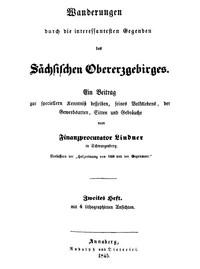

: Le bocche inutili: dramma in tre atti by Vivanti Annie - Italian drama 20th century IT Teatro in prosa
